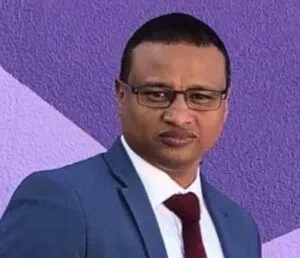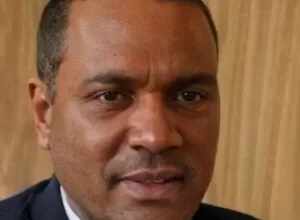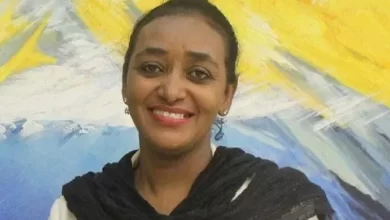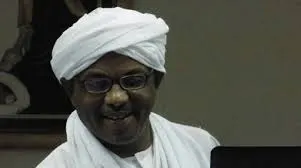Sudan on the Brink of Explosion: Secret Alliances between RSF and Armed Movements
And Coups Leading to Bone Breaking

Ammar Najm al-Din
An Introduction:
Alliances within the Sudanese Army and its loyalists are heading towards collapse, as information indicates that new alliances are being formed that could weaken the power of the central Army in an unprecedented way. This imminent split will test the Army in a severe manner, especially when faced with the possibility of some Darfur Movements allying with the Rapid Support Forces.
It seems that we are on the cusp of a new phase of conflict, which will plunge the country into a cycle of “bone breaking,” as alliances will change and conflicts will become more complicated.
Failure of Integration and Peace: Signs of Collapse
The Juba Peace Agreement wasn’t implemented as promised, and the full integration between the Army and Armed Movements wasn’t completed. Reality revealed that the only integration achieved was with Malik Agar’s forces, and under direct pressure from the Commander of the Rapid Support Forces, Mohamed Hamdan Daglo (Hemedti). However, this integration came in a superficial and humiliating manner; The soldiers were left in Khalid bin al-Walid camp for two weeks without food or medicine, which prompted them to leave the camp after being completely neglected.
In an ironic turn of events, when the Army abandoned them, Hemedti was the one who paid the salaries of these soldiers and fed them, after Al-Burhan refused to provide for their needs before the October 25th, 2021 Coup. The Commander of the Rapid Support Forces became the “savior” of these soldiers, in a scene that exposes the cracks within the military alliances.
As for Malik Agar, he later sided with Al-Burhan, a development that sparked ridicule, as his soldiers were starving and Hemedti was providing them with food. Malik is known for not being able to bear hunger, and he shared in one of his false statements after the outbreak of the April 15th war: “We told Al-Burhan in Ad-Damazin (let us tie this boy up for you and kill him), but he refused.”
It is a false sense of heroism in a time driven by interests, where fragile alliances between parties are managed on the basis of opportunism more than principles.
Back to the Era of Exploitation and Opportunism:
The Armed Movements that used to rave about the revolution and democratic transformation turned against their past and joined the ranks of Al-Burhan’s coup on October 25th, 2021. What was supposed to be a political discourse of struggle became a mere tool for achieving authoritarian gains. It turned out that these Movements were using justice as leverage to seize their share of power, not as an inherent right for which they were fighting.
This contradiction was clearly evident in the actions of the Justice and Equality Movement (JEM), which restored the extremist Islamic discourse and, under the leadership of Gibril Ibrahim, became a tool in the hands of the Muslim Brotherhood with the approach of Sayyid Qutb (Creed and loyalty), however, he forgot that ((race is stronger than religion)) and that his end would be similar.
As for Minnawi, after the war broke out his followers began to use the language of threats and intimidation against their opponents, threatening them with arrest and assassination, which isn’t farfetched for Minnawi, as we saw in Khartoum in (2004) how he was chasing his comrades in the streets of Al-Mohandessin with firearms.
Positions of False Neutrality: Betrayal of the Civilians’ Sacrifices
Amidst the ensuing chaos, the Armed Movements after the war of April 15th broke out adopted a position of neutrality towards the conflict between the Army and the Rapid Support Forces, which allowed for serious violations to occur, especially in Darfur and El-Geneina. The Intelligence distributed weapons to civilians, which in turn prompted them to confront the Rapid Support Forces, and the latter were heavily armed.
The civilians were armed with light Kalashnikov rifles, facing an arsenal of armored vehicles and advanced weapons, which inevitably led to the death of hundreds of civilians.
Despite these massacres, the Armed Movements didn’t move to defend civilians, didn’t break their position of neutrality even after all the states of Darfur fell into the hands of the Rapid Support Forces except for North Darfur, and their position didn’t change until large financial demands were submitted to Al-Burhan, so the Movements returned to fighting, but not in defense of Darfur and its citizens in El-Geneina, Zalingei or Ed-Daein, but in areas such as the radio station in Omdurman, Al-Dinder and Al-Jaili Refinery, where it seeks to achieve the narrow interests of the Army in the north.
New Alliance Negotiations: The Collapse of the Army Looms
Information indicates that secret negotiations are taking place between Minni Arcua Minnawi and the Rapid Support Forces to form a military alliance against the central government. These negotiations are being conducted slowly but steadily, and are being held in three countries: a neighboring country, an Arab country, and a European country.
If this alliance is completed, it will be a sign of the collapse of the control of the Sudanese Army, which is already suffering from exhaustion, especially after Al-Burhan became the first displaced president in the history of the country, running the affairs of the State from eastern Sudan. These new alliances will push Sudan into a more violent phase, deepen the crisis and open the door to a long-term conflict in which there is no room for anything but breaking bones between the warring parties.
Critique of War Supporters and Igniting the Conflict Fuse
The negative role played by some intellectuals and supporters of the war behind their screens cannot be overlooked. These instigators have contributed to fueling the conflict and encouraged civilians to take up arms to confront heavily armed forces, without realizing that Kalashnikov rifles cannot outlast armored vehicles and tanks.
Dr. Mohamed Jalal Hashim is a stark example of this negative role; he, like the Army and the Rapid Support Forces, bears responsibility for the deaths of thousands of civilians with his inflammatory rhetoric. These supporters of the war, no matter how hard they try to hide behind dazzling slogans, are partners in this ongoing tragedy.
In Conclusion: Sudan is on the Cusp of Major Transformations
It seems that Sudan is heading towards a new phase of political and military transformations, where old alliances are disintegrating and new forces are forming on the ruins of the central Army. What we are witnessing today is only the beginning of a major explosion to come, as conflicts will escalate and the balance of power in the country will be reshaped.
The coming days will be full of developments that may reshape the political and military landscape in Sudan. With fragile alliances disintegrating and interests reversing, Sudan will witness dramatic upheavals and violent conflict that will mark this stage with inevitable bloodshed and betrayal.





